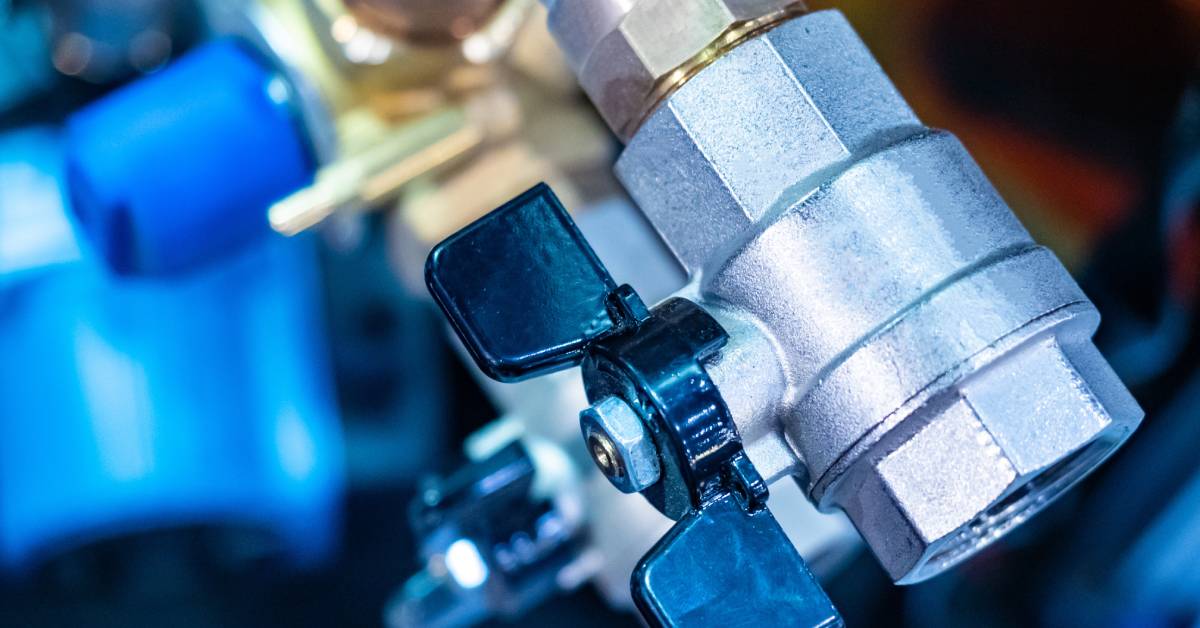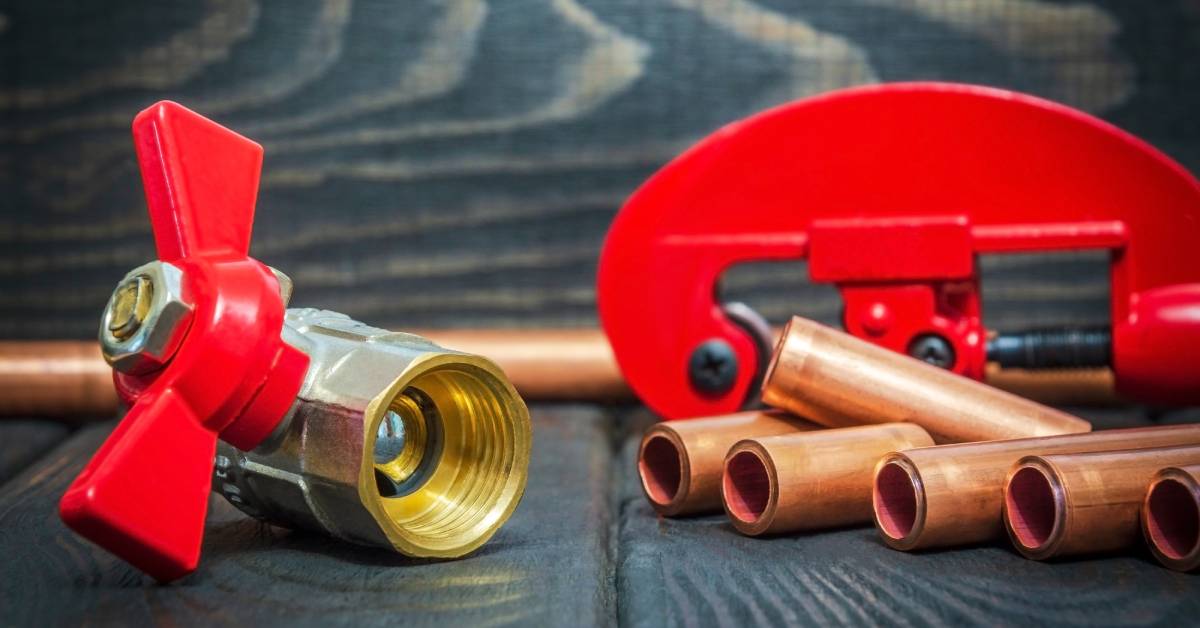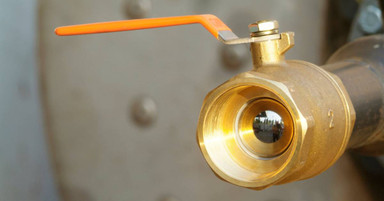17th Jan 2025
The Ultimate Guide to Compact Ball Valves: Uses & Benefits
Compact ball valves may be small, but their role in plumbing projects is significant. Their versatility, efficiency, and ease of use make them a top choice for professionals in the field. But what exactly are compact ball valves, and why are they so integral to so many projects?
This ultimate guide will walk you through the uses and benefits of compact ball valves so you can see how they save time, reduce costs, and improve the overall quality of your work.
Compact Ball Valves Up Close: Setting the Stage
A compact ball valve uses a perforated ball to control flow through a system. What makes them "compact" is their reduced, streamlined size, which makes them perfect for applications where space is limited or efficiency is paramount. Despite their small stature, they offer reliable performance and impressive durability.
These valves are typically constructed from high-quality materials, such as brass, stainless steel, or PVC, depending on the application. Their simplistic mechanism—a rotating ball controlled by a lever or actuator—makes them easy to operate and highly effective for managing the flow of liquids or gases.
With their straightforward design, they have become an industry favorite across multiple domains.
Anatomy of Compact Ball Valves
To truly understand compact ball valves, it’s important to break down their defining features. The key component, of course, is the ball itself. Precision-crafted for a near-perfect seal, the ball rotates within the valve body to either allow or block flow. A simple quarter-turn of the valve lever switches the ball's position.
Another standout feature is the valve's sealing mechanism, which typically uses reinforced seals to withstand high pressure and ensure leak-free operation. The compact size of these valves makes them particularly well-suited for tight installations without sacrificing flow efficiency.
Compact ball valves are available with ISO-standardized connections, ensuring compatibility with a wide array of systems. This flexibility allows them to fit seamlessly into existing installations.
Why Compact Ball Valves are Essential in Plumbing and Contracting
Compact ball valves shine in a variety of industries, but their primary use lies in managing and controlling fluid or gas flow in plumbing, HVAC, and water treatment systems. For plumbers, compact ball valves are indispensable components in piping systems, particularly when space is a concern and precision is a major requirement.
Builders incorporate these valves into residential and commercial projects to regulate water supply lines effectively. Their durability ensures they can withstand repeated use, while their streamlined design minimizes weight and bulk in large-scale installations.
Contractors rely on compact ball valves for their reliability and ease of use. Whether it's a gas line system or an industrial process, compact ball valves provide the control and durability needed to ensure safety and operational efficiency.

Unlocking the Benefits of Compact Ball Valves
Following a guide to the benefits and uses of compact ball valves is critical to making the most out of what these materials have to offer.
One of the standout benefits of compact ball valves is their efficiency. Because they operate with a simple quarter-turn mechanism, they enable quick and effortless control, which can be critical in emergency shutdowns or routine adjustments.
Additionally, their reduced size means they take up less space, making them ideal for retrofitting projects or installations in tight quarters. Durability is another major advantage. Compact ball valves are always built to last, with many models able to withstand high pressure and a wide range of temperatures. This makes them an excellent long-term investment for professionals.
From a cost-saving perspective, they provide superior performance while requiring minimal maintenance, reducing the total cost of ownership. Additionally, their precision reduces waste and optimizes system efficiency.
When Compact Ball Valves Prove Their Worth
Real-world implementations of compact ball valves underscore their versatility and reliability. One common example is in residential plumbing systems. Compact ball valves are frequently used to control individual water lines to appliances like dishwashers or washing machines. Their small size and easy operation make them an ideal solution for these applications.
Industrial facilities also benefit greatly from compact ball valves, especially in systems requiring precise flow control. For instance, in chemical processing plants, these valves can manage flow rates in a way that ensures both efficiency and safety.
HVAC systems frequently feature compact ball valves to regulate water or refrigerant flow. Their ability to handle pressure and temperature fluctuations makes them invaluable in maintaining system stability.
Choosing the Ideal Valve for Your Project
Selecting the right compact ball valve requires careful consideration of your specific application. Start by evaluating the type of fluid or gas being regulated, as this will influence the material of the valve. For example, stainless steel is typically the best choice for corrosive substances, while PVC is ideal for water systems.
Pressure and temperature ratings are another critical factor. Ensure the valve you select can withstand the operating conditions of your system to avoid performance issues or potential failures. Connection type is equally important. Be sure to choose valves with compatible fittings to ensure a hassle-free installation. Speak to your supplier for recommendations tailored to your requirements.

Making Them Last: Tips for Maintenance and Care
You can easily find compact ball valves perfectly tailored to different conditions. For example, at Maxx Supply, we carry PVC valve fittings in many variations, along with brass and stainless steel options. However, once you have the right valve fittings, you have to take care of them for long-term success.
To get the most out of your compact ball valves, regular maintenance is essential. One of the primary tasks is ensuring the seals and seats are debris-free. Dirt or residue buildup can hinder the valve’s performance and compromise its longevity.
Inspecting the ball and lever periodically for signs of wear or corrosion is also a good practice. Simple cleaning and lubrication can prevent minor issues from escalating. For long-term durability, always make sure your valves are operating within their specified pressure and temperature limits. Exceeding these can lead to seal failure and overall valve deterioration.
Compact Ball Valves Are Worth the Investment
Compact ball valves have earned their place as one of the most valuable components in the plumbing, building, and contracting industries. Their ability to provide efficient, reliable, and long-lasting control over fluid and gas systems makes them an essential tool for professionals.
By understanding their uses, benefits, and maintenance requirements, you can maximize their potential in your projects. Whether you're upgrading an existing system or starting from scratch, compact ball valves deliver unmatched performance. Invest in quality, and you'll see the difference on every job site.

